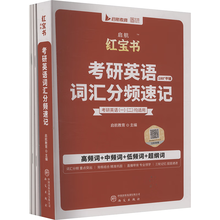TEST1
PartA
Directions:
Readthefollowingfourtexts.AnswerthequestionsbeloweachtextbychoosingA,B,C,orD.
Text1
Thankstomorethan50yearsofresearch,weknowhowtochangechildren’sbehavior.Inbrief,youidentifytheunwantedbehavior,defineitspositiveopposite(thedesirablebehavioryouwanttoreplaceitwith),andthenmakesurethatyourchildengagesinalotofreinforcedpracticeofthenewbehavioruntilitreplacestheunwantedone.Reinforcedpracticemeansthatyoupayasmuchattentionaspossibletothepositiveoppositesothatyourchildfallsintoapattern:Dotherightbehavior,getareward(praiseoratoken);dothebehavior,getareward.Reallifeisneverasmechanicallypredictableasthatformulamakesitsound,andmanyotherfactorswillbearonyoursuccess—includingyourrelationshipwithyourchild,whatbehaviorsyoumodelinyourhome,andwhatinfluencesyourchildisexposedtoinotherrelationships—but,still,weknowthatreinforcedpracticeusuallyworks.1Ifyouhandlethedetailsproperly,inmostcasesarelativelybriefperiodofintenseattentiontotheproblem,lastingperhapsafewweeks,shouldbeenoughtoworkapermanentchangeinbehavior.
So,yes,youcanchangeyourchild’sbehavior,butthatdoesn’tmeanyoualwaysshould.Whenfacedwithanunwantedbehavior,askyourselfifchangingabehaviorwillreallymakeaworthwhiledifferenceinyourchild’slifeandyourown.Manyunwantedbehaviors,includingsomethatdisturbparents,tendtodropoutontheirown,especiallyifyoudon’toverreacttothemandreinforcethemwithagreatdealofexcitedattention.2Takethumbsucking,whichisquitecommonuptoage5.Atthatpointitdropsoffsharplyandcontinuestodecline.Unlessthedentisttellsyouthatyouneedtodosomethingaboutitrightnow,youcanprobablyletthumbsuckinggo.
Now,we’renotsayingthatyoushouldignorelyingorstealingorsomeotherpotentiallyseriousmisbehaviorjustbecauseitwillprobablydropoutonitsowningoodtime.There’sanimportantdistinctiontobemadeherebetweenmanagingbehaviorandotherparentalmotivesandduties.Parentspunishforseveralreasons—toteachrightandwrong,tosatisfythedemandsofjustice,toestablishtheirauthority—thathavelittletodowithchangingbehavior.Youcan’tjustletvandalismgowithoutconsequences,andit’sreasonabletorefusetoputupwithevenalesseroffensesuchasunduewhining,butdon’tconfusepunishingmisbehaviorwithtakingeffectivestepstoeliminateit.Punishmentonitsown(thatis,notsupplementedbyreinforcedpracticeofthepositiveopposite)hasbeenprovenagainandagaintobeafairlyweakmethodforchangingbehavior.Themisbehaviorsinquestion,minororserious,aremorelikelytodropoutontheirownthantheyaretobeeliminatedthroughpunishment.
1.Howcanreinforcedpracticehelptochangechildren’sbehavior?
[A]Reinforcedpracticecaneventuallyreplacetheunwantedbehavior.
[B]Parentsneedtodefinetheconsequencesofunwantedbehavior.
[C]Atimelyrewardcanalwayshelptodefinepositivebehavior.
[D]Childrencanautomaticallytakeinreinforcedpracticeaspartoftheirhabits.
2.WhichofthefollowingmayNOTaffecttherealizationofpermanentchangeinbehavior?
[A]Relationshipbetweenparentsandchildren.
[B]Whatmodelsparentssetupathome.
[C]Howmuchawardchildrenarepromised.
[D]Howattentiveparentsare.
3.TheexampleofthumbsuckingiscitedtoproveallthefollowingEXCEPTthat________.
[A]itisunnecessarytocorrectallunwantedbehaviors
[B]someparentsaredisturbedbysuchmisbehaviors
[C]dentistssometimescanbewrongindiagnosingdiseaseswithoralcavity
[D]aschildrengrowup,someunwantedbehaviorsmightdenythemselves
4.Accordingtotheauthor,whatattitudeshouldparentstaketowardslyingorstealing?
[A]Parentscanexpectsuchbehaviorstodropoutonitsown.
[B]Parentsshouldlearntoputupwithsuchunwantedbehavior.
[C]Parentscandonothingexceptrelyingontheself-relianceofchildren.
[D]Parentsneedtoresorttoeffectivestepsinordertoeliminatesuchbehavior.
5.Theauthorimpliesthattheresultsofpunishment_____.
[A]maynotbeasprofitableastheyareexpected
[B]canserveasasupplementarypracticetopersuasion
[C]aremostlyunderestimatedbyparents
[D]relyonthenatureofmisbehavior
难词释义
vandalism['væ;nd?l?z???m]n.故意破坏,破坏行为
whining['wa?n??]n.哭哭啼啼,哭嚷
文章概要
本文出自SLATE2009年3月27日一篇题为“TheMessyRoomDilemma—WhentoIgnoreBehavior,WhentoChangeIt”的文章,作者AlanE.Kazdin和CarloRotella。本文主要阐述了家长对孩子负面行为应该持有的态度。习惯上,家长们总是会竭力纠正或制止从自己的角度出发不能接受的行为,然而本文作者认为孩子们的某些负面行为是会随着他们的成长而自然终止的。比如许多孩子的一个通病:啃手指甲就会在孩子大概5岁时自然停止。但是象撒谎、偷窃这样的行为的确不容忽视,家长应该采取切实有效的措施,正确引导孩子形成新的正面的行为,取代以前不好的负面行为。
难句分析
1.Reallifeisneverasmechanicallypredictableasthatformulamakesitsound,andmanyotherfactorswillbearonyoursuccess—includingyourrelationshipwithyourchild,whatbehaviorsyoumodelinyourhome,andwhatinfluencesyourchildisexposedtoinotherrelationships—but,still,weknowthatreinforcedpracticeusuallyworks.
结构分析:本句是“and”和“but”连接的三个并列句,其中第二个并列句包括介词“including”引导的主语补足语,补充说明“manyotherfactors”都包括哪些因素;第三个并列句是主谓宾的结构,“that”引导宾语从句。
参考译文:现实生活从来没有定式可言,许多其他因素会影响到你的成功,包括你与孩子的关系,你在家里的行为模式,以及孩子接触到的其他关系所产生的影响;但尽管如此,我们知道,强化某一行为常常是行之有效的。
2.Manyunwantedbehaviors,includingsomethatdisturbparents,tendtodropoutontheirown,especiallyifyoudon’toverreacttothemandreinforcethemwithagreatdealofexcitedattention.
结构分析:本句是包括“if”所引导的条件从句的主从复合句,主句的核心结构为“Manyunwantedbehaviors…tendtodropoutontheirown”,介词结构“includingsomethatdisturbparents”是主句主语“Manyunwantedbehaviors”的补足语。
参考译文:许多负面行为,包括那些让父母很不安的行为,往往会自行消失,尤其是那些你没有过度矫正,和那些由于刻意重视反而被强化的行为。
题目解析
1.答案为[A]。细节题。文章首段第二句“…yourchildengagesinalotofreinforcedpracticeofthenewbehavioruntilitreplacestheunwantedone”,可见作者认为不断地强化一种新的行为会使其逐渐取代那些不好的行为,这是一个逐步改造和最终替代的过程,因此选择[A]。
2.答案为[C]。细节题。文章第一段第四句“Reallife…,andmanyotherfactorswillbearonyoursuccess…”指出校正孩子的行为也会受到一些其他因素的影响,比如1)yourrelationshipwithyourchild;2)whatbehaviorsyoumodelinyourhome;3)whatinfluencesyourchildisexposedtoinotherrelationships.只有选项[C]原文没有提及,因此本题应选[C]。
3.答案为[C]。推断题。文章第二段首先阐述了家长在制止孩子的某些负面行为时首先要判断这样做是否有意义,因为这些行为往往会自然终止,由此可判断选项[A]和[D]是符合文章原意的;选项[B]与本段第三句话所表达的意思一致,因此只有[C]选项是文章没有提及的,所以本题应选[C]。
4.答案为[D]。态度题。文章最后一段首句指出“…we’renotsayingthatyoushouldignorelyingorstealing…”,也就是我们不应该忽视诸如撒谎、偷窃这样的行为,因为这类行为的性质和前段所列举的小孩子“啃指甲”的坏毛病不同。对于后者,家长可以不干涉,因为这类行为在孩子长大后会自然终止,撒谎等行为既然不同于这类行为,就应该重视,并采取有效的方法制止,因此本题选择[D]。[A]选项和[B]选项都不符合原文的意思;[C]选项的意思是家长面对此类行为无能为力,显然也与作者的原意相反。
5.答案为[A]。推断题。根据文章的最后两句话“Punishmentonitsown…forchangingbehavior.”以及“Themisbehaviors…aretobeeliminatedthroughpunishment”可以得出作者认为许多负面的行为是会自动停止的,相对而言,惩罚常常是行之无效的,因此本题应选[A]。[B]、[C]选项与原文意思不符,[D]选项的内容与文章主题不相关。
参考译文
过去50多年来的研究成果使我们懂得了该如何改变孩子的行为习惯。简而言之,首先识别孩子的不良行为,而后明确其积极的对立面(即你希望孩子取代坏习惯的理想行为),然后确保孩子不断地强化练习这种新行为,最终使其取代那些不良行为。强化练习是指尽可能更多地关注不良行为的积极对立面,帮助孩子形成这样一种模式:做对了会有奖(口头表扬或给个奖品);以后按照正确的方式去做了也有奖。现实生活从来没有定式可言,许多其他因素会影响到你的成功,包括你与孩子的关系,你在家里的行为模式,以及孩子接触到的其他关系所产生的影响;但尽管如此,我们知道,强化某一行为常常是行之有效的。如果细节处理得当,大多数情况下,只要对该问题密切关注一段时间(也许需要几周),那么就足以使行为永久改变。
的确,你可以改变孩子的行为,但那不意味着你永远都可以这样做。遇到孩子有不良行为时,问问自己,如果矫正了这种行为,对你和孩子的生活是否真的值得、真的重要。许多不良行为,包括那些让父母很不安的行为,往往会自行消失,尤其是那些你没有过度矫正,和那些由于刻意重视反而被强化的行为。以吮拇指为例,这在5岁以下的孩子中是非常常见的。但到5岁时就会明显减少,并会持续减少下去。除非牙医对你说有必要立刻制止孩子吮拇指,否则你可以任其发展下去。
以上事实并不是说因为有些坏毛病到一定时候自行消失,所以我们应该无视那些撒谎、偷窃或其他潜在的严重坏行为。这里有必要对矫正习惯和其他父母管教的职责和目的做一个区分。父母惩罚孩子有如下几个原因:教给孩子是非观念,满足正义的要求,建立家长权威,而这些都与改变孩子行为习惯关系不大。我们不能放任不顾后果的破坏行为,而且也有必要拒绝容忍像过分哭闹那样的小小触怒。但是,我们不能把惩罚不良行为与采取有效措施消除不良行为混为一谈。惩罚本身(指没有对不良行为的积极对立面的强化训练来加以补充)一次又一次地被证明对改变行为方式收效甚微。那些大家认为的不良行为,无论大小,都更有可能自行改正而不是通过惩罚来消除。
展开










